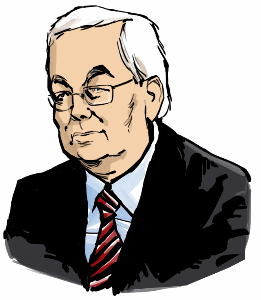© Gunnar Tómasson
9 February 2017
I. Ecce Homo – Behold the Man – Jesus Myth
(Matthew 16:13-28, KJB 1611)
867066
16:13
23675 = When Iesus came into the coasts of Cesarea Philippi,
11616 = he asked his disciples, saying,
16:14
17235 = Whom doe men say, that I, the sonne of man, am?
22774 = And they said, Some say that thou art Iohn the Baptist,
23541 = some Elias, and others Ieremias, or one of the Prophets.
16:15
19313 = He saith vnto them, But whom say ye that I am?
16:16
14266 = And Simon Peter answered, and said,
19943 = Thou art Christ the sonne of the liuing God.
16:17
16129 = And Iesus answered, and said vnto him,
13647 = Blessed art thou Simon Bar Iona:
20799 = for flesh and blood hath not reueiled it vnto thee,
13923 = but my Father which is in heauen.
16:18
19578 = And I say also vnto thee, that thou art Peter,
19317 = and vpon this rocke I will build my Church:
20444 = and the gates of hell shall not preuaile against it.
16:19
24422 = And I will giue vnto thee the keyes of the kingdome of heauen:
27217 = and whatsoeuer thou shalt bind on earth, shall be bound in heauen:
28617 = whatsoeuer thou shalt loose on earth, shall be loosed in heauen.
16:20
11853 = Then charged hee his disciples
26502 = that they should tel no man that he was Iesus the Christ.
16:21
29661 = From that time foorth began Iesus to shew vnto his disciples,
18499 = how that he must goe vnto Hierusalem,
26389 = and suffer many things of the Elders and chiefe Priests & Scribes,
14138 = and be killed, and be raised againe the third day.
16:22
19850 = Then Peter tooke him, and began to rebuke him, saying,
22014 = Be it farre from thee Lord: This shall not be vnto thee.
16:23
14777 = But he turned, and said vnto Peter,
20644 = Get thee behind mee, Satan, thou art an offence vnto me:
23056 = for thou sauourest not the things that be of God,
9994 = but those that be of men.
16:24
16638 = Then said Iesus vnto his disciples,
19428 = If any man will come after me, let him denie himselfe,
15967 = and take vp his crosse, and follow me.
16:25
23087 = For whosoeuer will saue his life, shall lose it:
26153 = and whosoeuer will lose his life for my sake, shall finde it.
16:26
26176 = For what is a man profited, if hee shal gaine the whole world,
11444 = and lose his owne soule?
21248 = Or what shall a man giue in exchange for his soule?
16:27
23180 = For the sonne of man shall come in the glory of his father,
7914 = with his Angels:
25821 = and then he shall reward euery man according to his works.
16:28
21013 = Verely I say vnto you, There be some standing here,
13842 = which shall not taste of death,
21322 = till they see the Sonne of man coming in his Kingdome.
867066
II. Victor Hugo – About Shakespeare
(Shakespeare, 1864)
867066
Preface
18798 = The true title of this work should be,
11010 = „Apropos to Shakespeare.“
26428 = The desire of introducing, as they say in England, before the public,
16554 = the new translation of Shakespeare,
17364 = has been the first motive of the author.
30988 = The feeling which interests him so profoundly in the translator
29816 = should not deprive him of the right to recommend the translation.
27264 = However, his conscience has been solicited on the other part,
21802 = and in a more binding way still, by the subject itself.
11385 = In reference to Shakespeare
27059 = all questions which touch art are presented to his mind.
28624 = To treat these questions, is to explain the mission of art;
37741 = to treat these questions, is to explain the duty of human thought toward man.
24720 = Such an occasion for speaking truths imposes a duty,
28682 = and he is not permitted, above all at such an epoch as ours, to evade it.
14528 = The author has comprehended this.
35720 = He has not hesitated to turn the complex questions of art and civilization
9632 = on their several faces,
36720 = multiplying the horizons every time that the perspective has displaced itself,
34027 = and accepting every indication that the subject, in its rigorous necessity,
7003 = has offered to him.
30217 = This expansion of the point of view has given rise to this book.
”I shall translate Shakespeare”
(Op. cit., Omega Ch. 1.)
15595 = Let us return to Marine Terrace.
29701 = One morning at the end of November, two of the inhabitants of the place,
33986 = the father and the youngest of the sons, were seated in the lower parlour.
25810 = They were silent, like ship-wrecked ones who meditate.
17233 = Without, it rained; the wind blew.
20586 = The house was as if deafened by the outer roaring.
10983 = Both went on thinking,
18922 = absorbed perhaps by this coincidence between
18726 = a beginning of winter and the beginning of exile.
21682 = All at once the son raised his voice and asked the father, –
16935 = “What thinkest thou of this exile?”
9376 = “That it will be long.”
18003 = “How dost thou reckon to fill it up?”
9171 = The father answered, –
9786 = “I shall look on the ocean.”
25686 = There was a silence. The father resumed the conversation: –
2901 = “And you?”
5696 = “I,” said the son, –
12739 = “I shall translate Shakespeare.”
Shakespeare Translated
(Gunnar Tómasson)
Alpha
4123 = Osiris
2642 = Isis
3702 = Horus
Omega
7000 = Microcosmos – Man in God‘s Image
867066
III + IV = 626822 + 240244 = 867066
III. L’herbe cache et la pluie efface¹
(Les Miserables, Livre XVIII, Ch. VI.)
626822
9913 = L’herbe cache et la pluie efface
27967 = Il y a, au cimetière du Père-Lachaise, aux environs de la fosse commune,
24009 = loin du quartier élégant de cette ville des sépulcres,
16471 = loin de tous ces tombeaux de fantaisie
28171 = qui étalent en présence de l’éternité les hideuses modes de la mort,
18715 = dans un angle désert, le long d’un vieux mur,
22258 = sous un grand if auquel grimpent les liserons,
21858 = parmi les chiendents et les mousses, une pierre.
24572 = Cette pierre n’est pas plus exempte que les autres
31176 = des lèpres du temps, de la moisissure, du lichen, et des fientes d’oiseaux.
12574 = L’eau la verdit, l’air la noircit.
15536 = Elle n’est voisine d’aucun sentier,
12470 = et l’on n’aime pas aller de ce côté-là,
31364 = parce que l’herbe est haute et qu’on a tout de suite les pieds mouillés.
21415 = Quand il y a un peu de soleil, les lézards y viennent.
24688 = Il y a, tout autour, un frémissement de folles avoines.
22310 = Au printemps, les fauvettes chantent dans l’arbre.
13433 = Cette pierre est toute nue.
20970 = On n’a songé en la taillant qu’au nécessaire de la tombe,
22309 = et l’on n’a pris d’autre soin que de faire cette pierre
27021 = assez longue et assez étroite pour couvrir un homme.
8835 = On n’y lit aucun nom.
15586 = Seulement, voilà de cela bien des années déjà,
18949 = une main y a écrit au crayon ces quatre vers
32233 = qui sont devenus peu à peu illisibles sous la pluie et la poussière,
20102 = et qui probablement sont aujourd’hui effacés:
23994 = Il dort. Quoique le sort fût pour lui bien étrange,
22982 = Il vivait. Il mourut quand il n’eut plus son ange,
15117 = La chose simplement d’elle-même arriva,
19824 = Comme la nuit se fait lorsque le jour s’en va.
626822
IV. He is not here: for he is risen
(Matt. 28:1-6 KJB 1611)
240244
28:1
8816 = In the ende of the Sabbath,
24803 = as it began to dawne towards the first day of the weeke,
13183 = came Mary Magdalene, and the other Mary,
9596 = to see the sepulchre.
28:2
15752 = And behold, there was a great earthquake,
17678 = for the Angel of the Lord descended from heaven,
18515 = and came and rolled backe the stone from the doore,
7196 = and sate upon it.
28:3
16277 = His countenance was like lightning,
15215 = and his raiment white as snowe.
28:4
14513 = And for feare of him, the keepers did shake,
5562 = and became as dead men.
28:5
20042 = And the Angel answered, and said unto the women,
4440 = Feare not ye:
24785 = for I know that ye seeke Jesus, which was crucified.
28:6
5730 = He is not here:
10050 = for he is risen, as hee said:
Victor Hugo Translated
(Gunnar Tómasson)
The Angel of the Lord
4385 = Hagia Sophia – Divine Wisdom
He is not here
-3394 = Jesus
For he is risen
7000 = Microcosmos – Man in God’s Image
FINIS
100 = THE END
240244
***
Calculator for converting letters to cipher values is at:
http://www.light-of-truth.com/ciphersaga.htm
¹ Grass Conceals And Rain Blots Out
In the Père-Lachaise cemetery, in the neighborhood of the potters’ field, far from the elegant quarter of that city of sepulchers, far from all those fantastic tombs that display in presence of eternity the hideous fashions of death, in a deserted corner, beside an old wall, beneath a great yew on which the bindweed climbs, among the dog-grass and the mosses, there is a stone. This stone is exempt no more than the rest from the leprosy of time, from the mold, the lichen, and the birds’ droppings. The air turns it black, the water green. It is near no path, and people do not like to go in that direction, because the grass is high, and they would wet their feet. All around there is a rustling of wild oats. In spring, the linnets come to sing in the tree.
This stone is entirely blank. The only thought in cutting it was of the essentials of the grave, and there was no other care than to make this stone long enough and narrow enough to cover a man.
No name can be read there.
Only many years ago, a hand wrote on it in pencil these four lines, which have gradually become illegible under the rain and the dust, and are probably gone by now:
Il dort. Quoique le sort fût pour lui bien étrange.
Il vivait. Il mourut quand il n’eut plus son ange.
La chose simplement d’elle-même arriva,
Comme la nuit se fait lorsque le jour s’en va.
In translation:
He is asleep. Though his mettle was sorely tried,
He lived, and when he lost his angel, died.
It happened calmly, on its own,
The way night comes when day is done.

 Gunnar Tómasson
Gunnar Tómasson